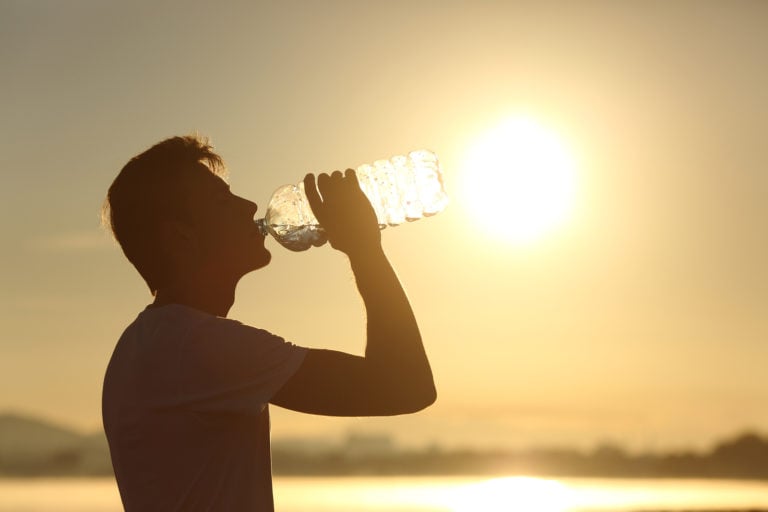You may already know that dehydration can cause you to become seriously ill, but did you know that it could also affect the health of your eyes?
How Dehydration Affects Your Body
Water is a critical element of your body – every cell depends on getting enough fluids to survive. Dehydration robs your tissues and organs of the fluid they need to function. When your body does not get the hydration it needs, your eyes and other organs can suffer.
Your body becomes dehydrated when it does not have enough fluids, either because you have not taken in enough water or because you are losing fluid quickly through extreme sweating, vomiting, or diarrhea. Extreme heat, illness, alcohol consumption and certain illnesses, like diabetes, increase your risk of dehydration.
What Happens When You’re Dehydrated
When your body loses fluid, it reacts by conserving water. This conservation leads to the various symptoms of dehydration around the body, such as thirst, dry mouth, decreased urine output, headache, lightheadedness, muscle cramps and more.
Dehydration can also slow down the production of tears that lubricate and nourish your eyes. Tears help improve your vision by rinsing away dust and debris from your eyes. Without the lubrication tears provide, you can develop eye problems, such as dry eye, eyestrain and other issues that can interfere with your vision.
The combination of dehydration and poor lubrication can result in eye strain, which usually occurs only when you use your eyes too much to work on your computer, drive late at night, or concentrate on another visual task for a long time. Eye Strain causes tired eyes, blurred vision, double vision and headaches. Drinking the proper amount of fluids can reduce eye strain and restore vision.
Symptoms of dry eyes associated with dehydration include irritation, excess watering, blurred vision and feeling as if you have dirt, grit or a foreign object in your eye.
What You Can Do About It
The best treatment for dry eyes associated with dehydration is to drink enough water to restore fluid supplies in your body. Drink eight 8-oz glasses of water every day. Consume more during intense exercise or hot weather. Gulp down a glass of water even when you are not thirsty. Try to drink fluids when you are sick, especially if you have diarrhea, vomiting or a high fever that causes you to perspire.
Your eye doctor may also recommend eye drops that wash away foreign material, lubricate your eyes, and alleviate symptoms. You may also want to avoid alcohol and caffeine, which act as diuretics to make you urinate more frequently.
For more information about hydration and eye health, make an appointment with Florida Eye Specialists at one of our five convenient Jacksonville locations. Our highly trained, compassionate eye doctors can determine if dehydration is harming the health of your eyes and develop a treatment plan to help you regain your eye health.

